Japanese Encephalitis: A Comprehensive Guide To Symptoms, Diagnosis, And Prevention can help you understand what Japanese Encephalitis is all about and give you the information you need to protect yourself from this potentially fatal disease.
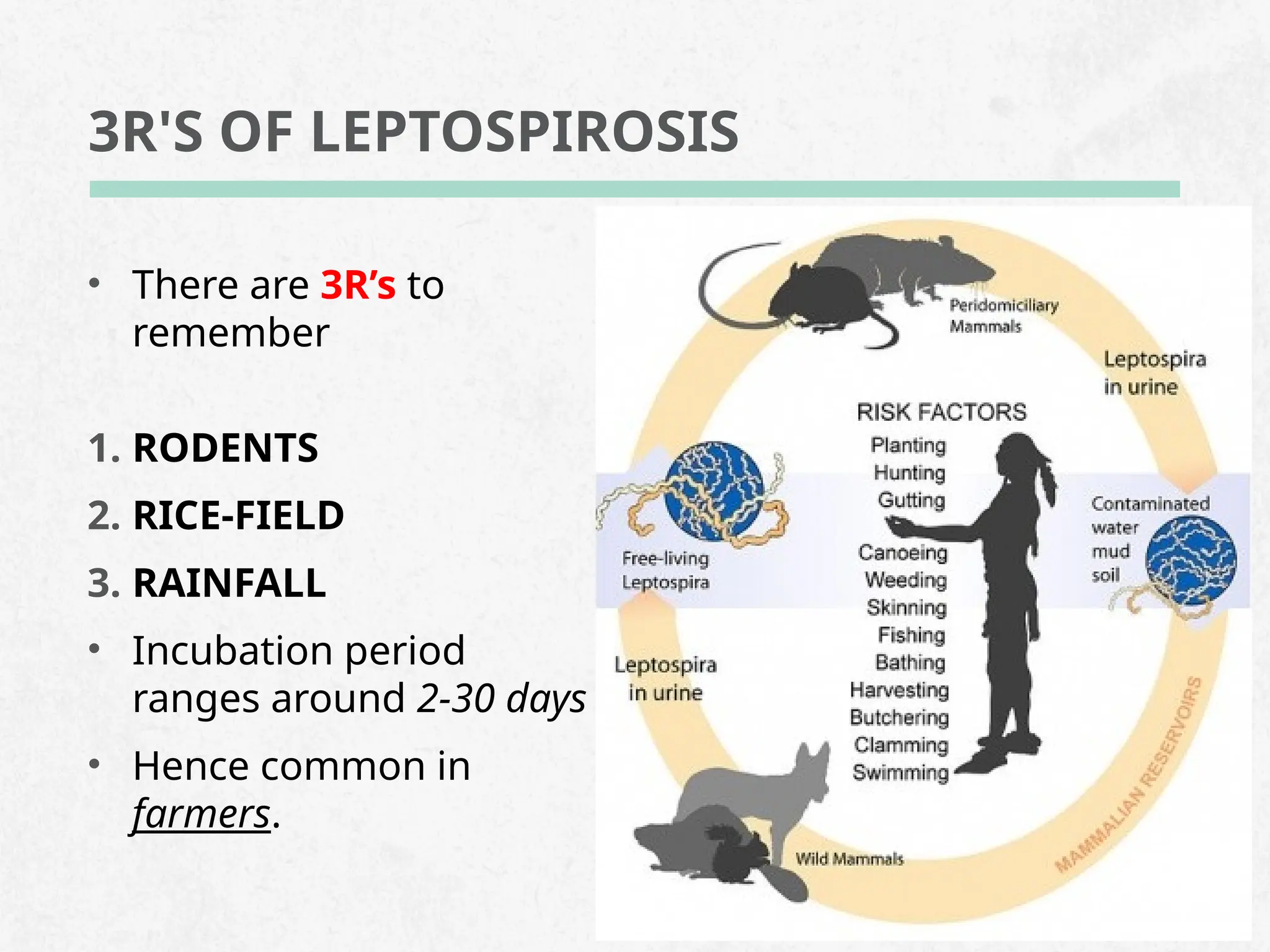
Japanese Encephalitis and Leptospirosis: Comprehensive Guide on - Source www.slideshare.net
Editor's Notes: "Japanese Encephalitis: A Comprehensive Guide To Symptoms, Diagnosis, And Prevention" have published today 27th May 2023. Japanese Encephalitis is a serious disease that can cause inflammation of the brain. Read this guide and get comprehensive knowledge about Japanese Encephalitis so that you can protect yourself and your loved ones.
We understand that making the right decision can be difficult, so we've put together this guide to help you understand Japanese Encephalitis and make informed choices about your health.
Key differences or Key takeways:
| Japanese Encephalitis | |
|---|---|
| Symptoms | Symptoms of Japanese encephalitis can range from mild to severe. Mild symptoms may include fever, headache, and vomiting. Severe symptoms may include seizures, coma, and death. |
| Diagnosis | Japanese encephalitis is diagnosed through a blood test that detects antibodies against the virus. |
| Prevention | There is no specific treatment for Japanese encephalitis, but there is a vaccine that can prevent the disease. |
Transition to main article topics:
Symptoms of Japanese Encephalitis
Diagnosis of Japanese Encephalitis
Prevention of Japanese Encephalitis
FAQ
This comprehensive FAQ section addresses common concerns and misconceptions related to Japanese Encephalitis, providing concise and informative answers to frequently asked questions.
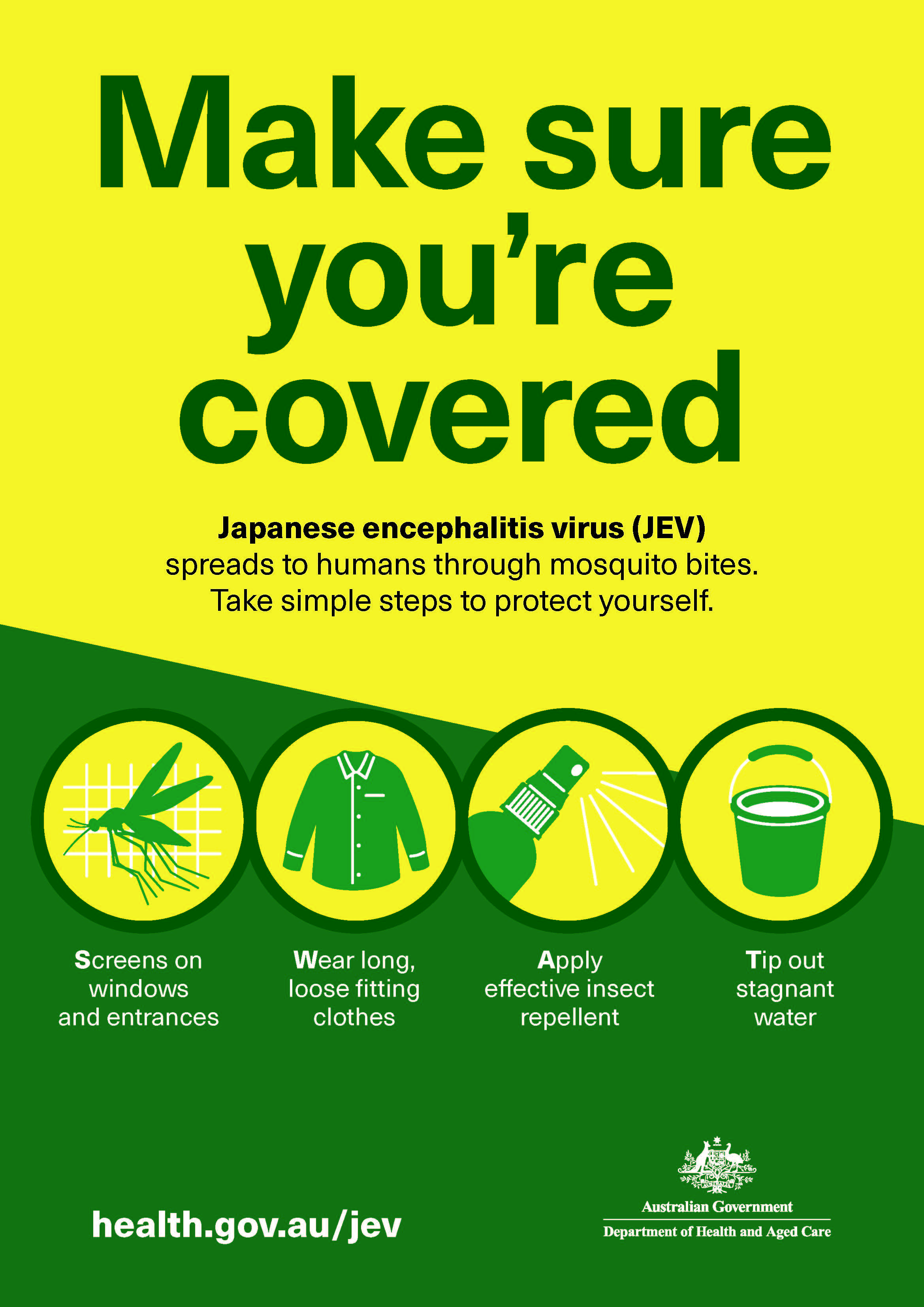
Japanese encephalitis virus (JEV) – Make sure you're covered - Source www.health.gov.au
Question 1: What are the early warning signs of Japanese Encephalitis?
Early symptoms may include: Fever, headache, nausea, vomiting, muscle weakness, and seizures.
Question 2: How is Japanese Encephalitis transmitted?
The virus is primarily transmitted through the bite of an infected mosquito. These mosquitoes breed in flooded rice fields and stagnant water bodies.
Question 3: Is there a cure for Japanese Encephalitis?
There is no specific cure for Japanese Encephalitis, but supportive care and treatment of symptoms can improve outcomes.
Question 4: Who is most at risk of developing Japanese Encephalitis?
Individuals living in or traveling to endemic areas, particularly during the monsoon season, are at highest risk.
Question 5: What can be done to prevent Japanese Encephalitis?
Preventive measures include mosquito repellents, protective clothing, mosquito nets, and vaccination.
Question 6: What are the long-term effects of Japanese Encephalitis?
Severe cases can lead to neurological complications, including paralysis, cognitive impairment, and seizures.
These FAQs provide crucial information about Japanese Encephalitis, its symptoms, transmission, prevention, and potential complications. Understanding and adhering to preventive measures can significantly reduce the risk of infection and its adverse effects.
Next: Symptoms of Japanese Encephalitis
Tips
Japanese encephalitis is a serious mosquito-borne disease that can cause inflammation of the brain. Japanese Encephalitis: A Comprehensive Guide To Symptoms, Diagnosis, And Prevention Here are some tips to help you prevent and protect yourself from Japanese encephalitis:
Tip 1: Get vaccinated
The Japanese encephalitis vaccine is the most effective way to prevent the disease. The vaccine is safe and effective, and it is recommended for people who travel to or live in areas where Japanese encephalitis is common.
Tip 2: Use insect repellent
Insect repellent can help to protect you from mosquito bites. Use an insect repellent that contains DEET, picaridin, or IR3535. Apply the insect repellent to your skin and clothing, and reapply it as needed.
Tip 3: Wear long sleeves and pants
Wearing long sleeves and pants can help to protect your skin from mosquito bites. Mosquitoes are most active at dawn and dusk, so it is important to wear protective clothing during these times.
Tip 4: Avoid standing water
Mosquitoes breed in standing water. Avoid areas where there is standing water, such as ponds, lakes, and swamps. If you must be in an area with standing water, wear long sleeves and pants and use insect repellent.
Tip 5: Use mosquito netting
Mosquito netting can help to protect you from mosquito bites. Use mosquito netting over your bed at night and when you are sleeping outdoors. Mosquito netting can also be used to cover windows and doors.
Summary
By following these tips, you can help to protect yourself from Japanese encephalitis. Japanese encephalitis is a serious disease, but it can be prevented with the right precautions.
Japanese Encephalitis: A Comprehensive Guide To Symptoms, Diagnosis, And Prevention
Japanese encephalitis is a serious mosquito-borne viral infection of the brain. It is a leading cause of viral encephalitis in Asia. The virus is transmitted to humans through the bite of an infected mosquito. The disease is most common in rural areas during the rainy season. Preventing Japanese encephalitis is essential, and vaccination is the most effective way to protect against the virus.
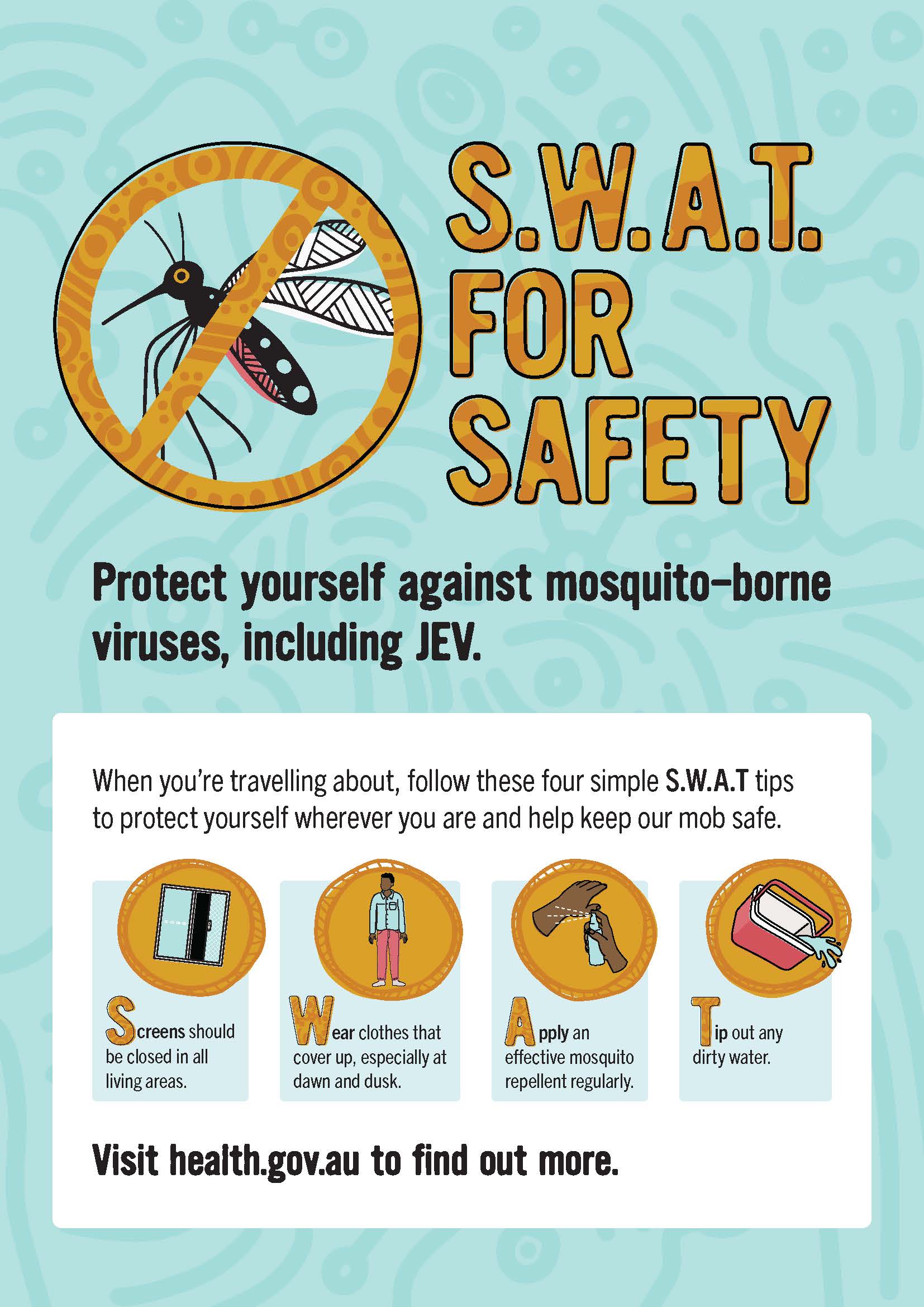
Japanese encephalitis virus (JEV) – SWAT for safety poster | Australian - Source www.health.gov.au
- Symptoms: Fever, headache, nausea, vomiting, disorientation, seizures
- Diagnosis: Blood test, MRI, CT scan
- Treatment: Supportive care, antiviral medications
- Prevention: Vaccination, mosquito repellents, protective clothing
- Epidemiology: Asia, Southeast Asia, Western Pacific
- Complications: Encephalopathy, seizures, paralysis
Japanese encephalitis can be a serious and potentially fatal disease. Early diagnosis and treatment are important to improve the chances of a full recovery. Vaccination is the most effective way to prevent Japanese encephalitis. The vaccine is safe and effective and is recommended for people who live in or travel to areas where the disease is common.
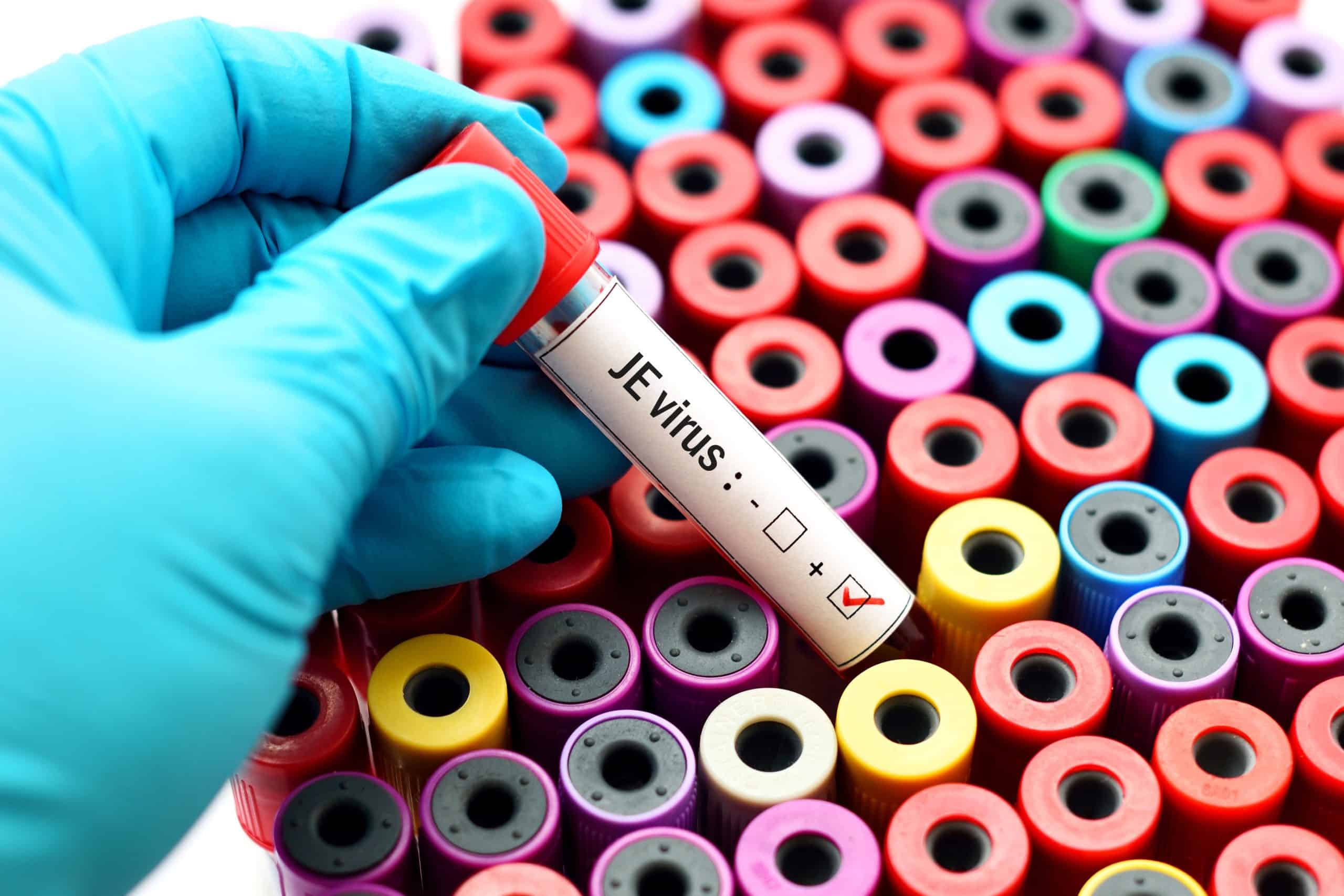
What Are The Japanese Encephalitis Symptoms In Adults? - Source www.touchwoodpharmacy.com
Japanese Encephalitis: A Comprehensive Guide To Symptoms, Diagnosis, And Prevention
Japanese encephalitis is a mosquito-borne viral infection of the brain. It is the leading cause of viral encephalitis in Asia and the western Pacific region. The virus is transmitted to humans by the bite of an infected mosquito.
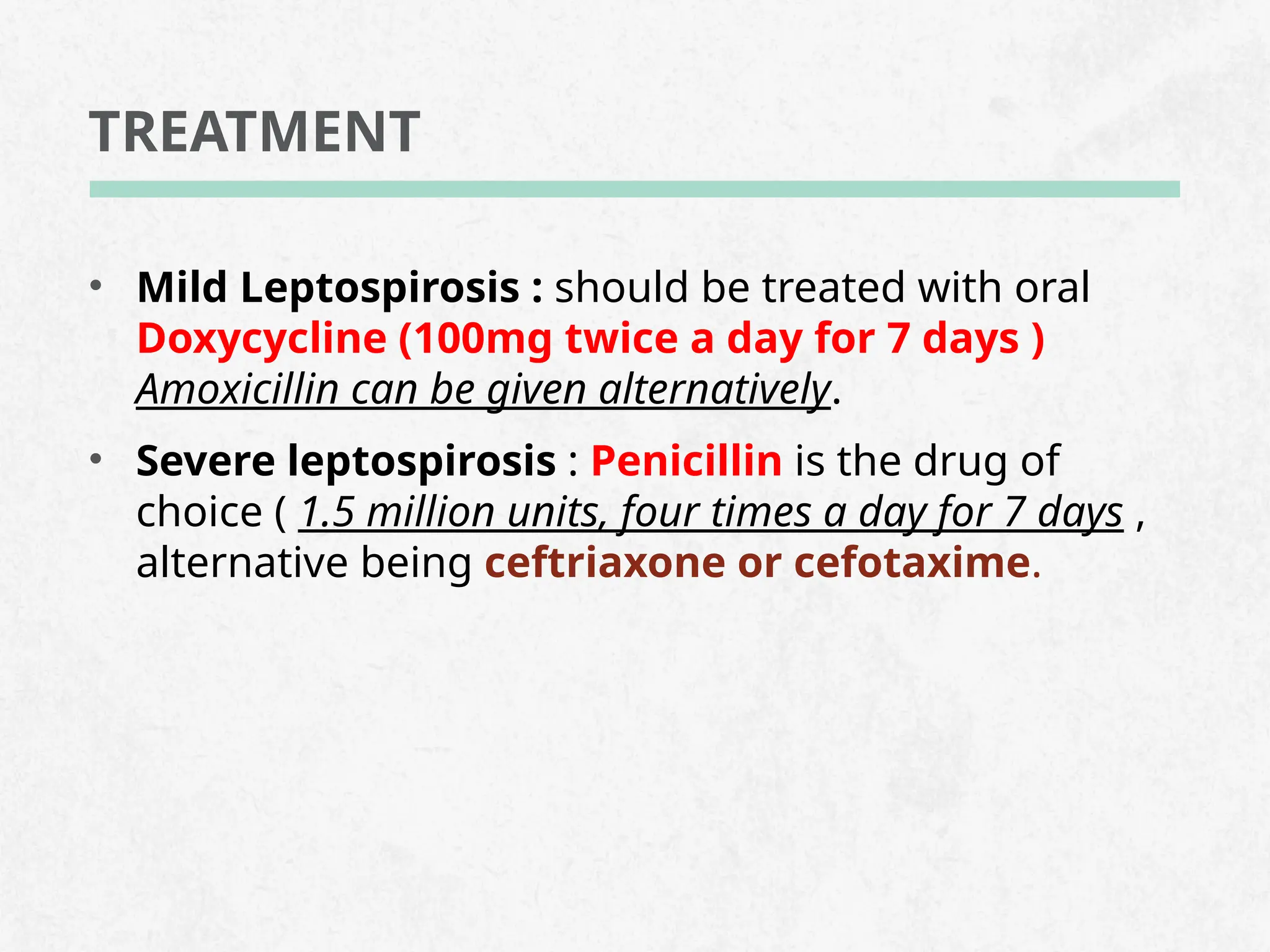
Japanese Encephalitis and Leptospirosis: Comprehensive Guide on - Source www.slideshare.net
The symptoms of Japanese encephalitis can range from mild to severe. Mild symptoms include fever, headache, and vomiting. Severe symptoms can include seizures, coma, and death. There is no specific treatment for Japanese encephalitis, but supportive care can help to improve the chances of survival.
The best way to prevent Japanese encephalitis is to avoid mosquito bites. This can be done by using insect repellent, wearing long sleeves and pants, and staying indoors during peak mosquito hours.
Conclusion
Japanese encephalitis is a serious illness that can be prevented by taking simple precautions to avoid mosquito bites.
If you are traveling to an area where Japanese encephalitis is common, it is important to take steps to protect yourself from mosquito bites. This includes using insect repellent, wearing long sleeves and pants, and staying indoors during peak mosquito hours.